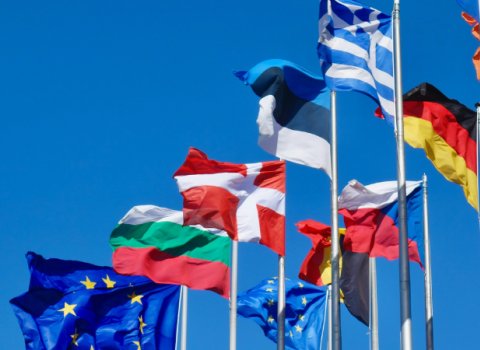Toumaz Technology Ltd, a specialist in ultra-low power wireless systems for personal monitoring devices has been awarded a Euro 7.1 million grant as part of Framework Programme 7 to develop a blood glucose prediction tool. The tool will make it easier for diabetics to monitor their condition.
The award will fund a four-year research and development project into the Personal Glucose Predictive Diabetes Advisor (DIAdvisor) portable glucose prediction system, that will utilise Toumaz’s Sensium wireless body monitoring technology. The project is being coordinated by Novo Nordisk A/S, a specialist in diabetes care, and will be delivered by a consortium of 13 medical, industrial and academic partners, including the European region of the International Diabetes Federation (IDF).
The aim is to give insulin dependent patients much greater control in managing their condition. Current management techniques are restricted to the analysis of blood glucose history, with almost no ability to predict what blood glucose levels might be several hours after measurement.
The DIAdvisor will analyse physiological inputs from non-intrusive wireless monitors on the body. Prediction of blood glucose levels will be based on glucose measurements, insulin delivery data, and specific patient parameters, to allow patients to actively and accurately predict their short-term blood glucose outlook at any time.
This will enable users to optimise their insulin therapy or take other proactive measures to regulate glucose levels, such as food intake and exercise, significantly reducing the risk, occurrence and potential treatment costs of hypoglycaemic events and the debilitating complications that arise from long term hyperglycaemia.
The system will also be capable of wirelessly connecting and providing information and trend data directly to healthcare providers.
Toumaz’s role is to implement the DIAdvisor hardware and software platform to enable multiple measurements to be taken from non-intrusive monitors worn on the body, and merged with manually entered measurements, such as food intake. This will provide the data for the creation of physiological mathematical modelling, control and prediction algorithms. The resulting analysis and prediction information will then be able to be wirelessly transmitted to a healthcare provider advisory service, with recommended action and treatment advice presented to the patient via a handheld mobile device.
First stage data gathering and clinical trials are planned to start in August 2008, with initial data expected by the end of the year.
“Insulin-treated diabetes is one of the most difficult therapies to manage, because of the difficulty in actively predicting glucose levels,” said Alison Burdett, Director of Technology for Toumaz. She added that the project is bringing together experts in the fields of medicine, healthcare, science and technology to develop a new system to improve diabetes control, optimise therapy, and ensure better quality of life for both Type 1 and Type 2 diabetes patients.
“With DIAdvisor, we will be putting a sophisticated treatment advisor in the hands of patients for the first time, empowering them in their own healthcare management and significantly reducing the likelihood of serious complications and recurrent hospitalisation due to poor glucose control. For healthcare providers, this will have a significant positive impact on cost reduction for the treatment of diabetes,” said Burdett.
In the European Union, average diabetes prevalence rates are now at 7.5 per cent, with a predicted growth to 16 per cent by 2025. Up to 50 per cent of diabetes cases are currently estimated to be undiagnosed. The global market for medical devices for diabetics is more than 5 billion Euros annually.
The other participants in the DIAdvisor consortium are Novo Nordisk AS, Denmark, Johannes Kepler Universitaet Linz, Austria, Lunds Universitet, Sweden, Universita Degli Studi di Padova, Italy, Centre Hospitalier Regional Universitaire de Montpellier, France, Sensor Technology and Devices Ltd, UK, Ondalys SARL, France, Romsoft SRL, Romania, Institut Klinicke a Experimentalni Mediciny, Czech Republic, RICAM, Oesterreichische Akademie der Wissenschaften, Austria, Ramboll Danmark A/S, Denmark, Federation Internationale du Diabete Region Europe, Belgium.





 A unique international forum for public research organisations and companies to connect their external engagement with strategic interests around their R&D system.
A unique international forum for public research organisations and companies to connect their external engagement with strategic interests around their R&D system.